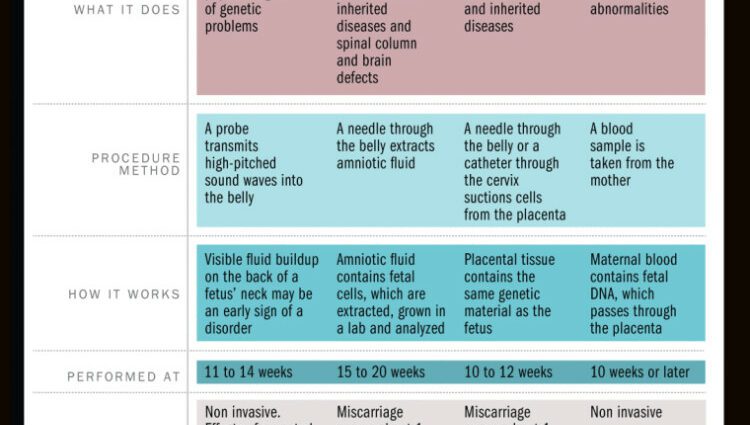Contents
Pregnant, what are the blood tests to do?
The dosage of the hormone HCG
The pregnancy test is positive. First reflex: a blood test is taken to dose the hormone HCG (Gonadotropic Chorionic Hormone) which is secreted by the placenta from the implantation of the embryo in the uterus. This is the most reliable way to confirm that you are pregnant.
Rubella screening
Rubella is a mild disease, but it can be dangerous for the fetus if it is contracted during the 1st trimester of pregnancy. The only way to know if you are protected is to take a blood test to measure your anti-rubella antibody level. If the test is negative, we will have to repeat this serology every month to check that we have not been contaminated. Since vaccination against rubella is prohibited during pregnancy, it is advisable to be vaccinated after birth.
Screening for toxoplasmosis
As with rubella, screening for toxoplasmosis is mandatory in pregnant women. This infection, if contracted during early pregnancy, can cause lesions in children, especially in the brain and eye. As soon as we are pregnant, our doctor will therefore ask us to perform a toxoplasmosis serology.. If the test is positive, then we have been in contact with the disease and we are protected. Otherwise, a blood test should be done every month to check that you have not caught the disease. If you are not immune, you should also take dietary precautions. There is no vaccine against toxoplasmosis.
Irregular blood group and agglutinins
At the start of our pregnancy, we will be asked to take a blood test to check our blood group and our rhesus. Knowledge of rh is important in determining a possible blood incompatibility between the fetus and the mother. The detection of irregular agglutinins (antibodies dangerous for the fetus) is thus systematically carried out in pregnant women who have a negative rh. The blood group is necessary, in the event that a significant hemorrhage occurs at the time of childbirth, requiring a transfusion.
Complete blood count (CBC)
Anemia is common in pregnant women in the 3rd trimester. This is why a blood test, called a blood count (CBC), is routinely prescribed during the 6th month of pregnancy. Depending on the results, your doctor may prescribe an iron supplement for you.
Serum markers for trisomy 21
Early screening for trisomy 21 was implemented in 2010. The main novelty of this screening is that it occurs earlier in pregnancy, during the first trimester (between the 11th and 13th week of amenorrhea). Carried out in one go, it combines three parameters: the age of the mother, assays of biochemical markers and ultrasound (nuchal translucency of the fetus). Another change: women aged 38 and over no longer have to systematically undergo amniocentesis, they can benefit, as a first step, from combined screening of the first trimester.
All pregnant women should be informed of the possibility of using combined screening to assess the risk of Down’s syndrome for the unborn child. She is free to refuse or agree to take this test, but in all cases she must expressly give her consent.
Screening for gestational diabetes
If you are at risk of developing gestational diabetes, you should have an exam with theabsorption of 75 g of sugar all at once, and three blood tests: the first on an empty stomach, the second 1 hour after taking glucose, and the third 2 hours later.










